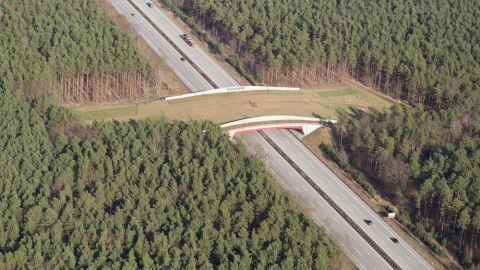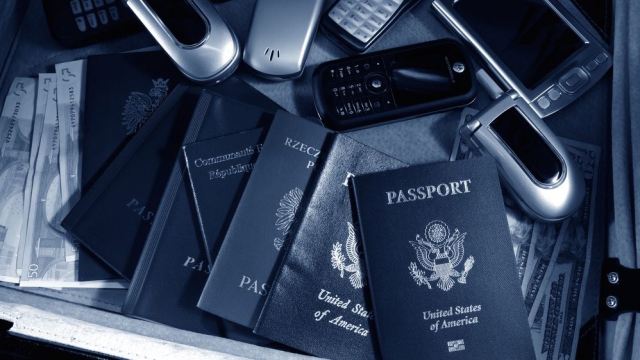Land Bridge Gives Animals Right of Way on Roads

When humans build new roads or expand existing ones, they tend to intrude on animal habitats. The animal-vehicle collisions that result typically end with the loss of animal life. They also threaten human safety and cost money to clean up after: animal removal, car repair, hospital bills, etc.
Now, engineers at the University of Montana are working to mitigate the impact of roads on wildlife by building overpasses and underpasses that give a variety of animals the freedom to move safely and at will.
The project began after the Montana Department of Transportation approached the Confederated Salish and Kootenai Tribes with a proposal to widen U.S. Highway 93 where it bisects the Flathead Indian Reservation. To preserve the spirit of the land, the tribes insisted that animal life be protected.
“The 56-mile segment of Highway 93 now contains 41 fish and wildlife underpasses and overpasses, as well as other protective measures to avoid fatalities.”
Four grizzlies were killed by automobiles between 1998 and 2010 on the Flathead reservation section of highway. But researchers have documented increased use of the underpasses and overpasses as animals become more accustomed to their new pathways.
Engineers say the project also makes good economic sense: it costs less to build the new structures than it does to pay for repair and cleanup caused by animal-vehicle collisions.
As the land bridges are constructed, the animals begin to use them more and more. Current data states that the number of animal crossing is in the tens of thousands.
For a primer on the topic of animal rights, watch New York University philosophy professor Dale Jamieson’s interview with Big Think. He discusses what arguments are the best in terms of defending animal rights and what he thinks of the animal rights movement:
Read more at Fast Company
Read more at Seattle Times
Read more at Sunny Skyz
Photo credit: Shutterstock





